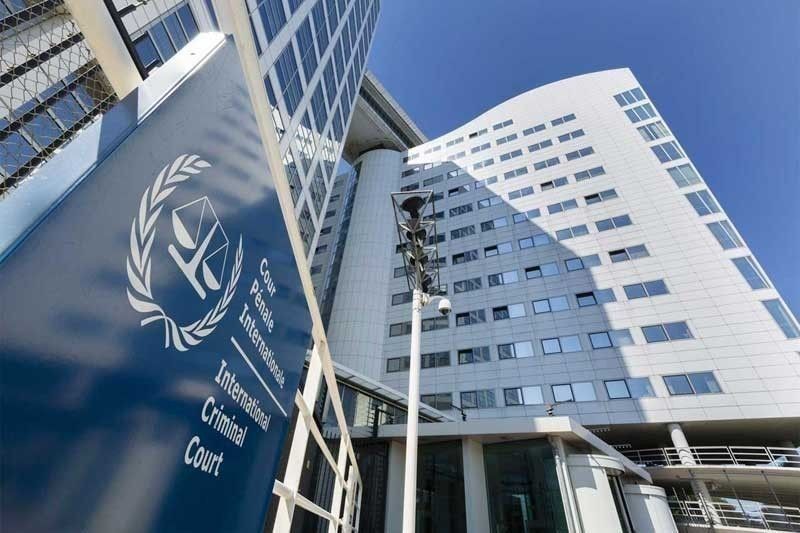ICC set to conclude preliminary exam on drug war

MANILA, Philippines — The International Criminal Court (ICC) aims to conclude its preliminary examination on President Duterte’s controversial war on drugs by next year to see if there is a need for a full-blown investigation into the campaign that critics claim has killed over 20,000 people since 2016.
“During 2020, the Office will aim to finalize the preliminary examination in order to enable the Prosecutor to reach a decision on whether to seek authorization to open an investigation into the situation in the Philippines,” the ICC said in its “preliminary examination activities” report for 2019.
The court said it has “significantly advanced” its assessment on the alleged human rights violations in the Philippines to check if there is basis to conduct a probe.
“In addition to killings, it has been alleged that some individuals have been subjected to serious ill-treatment and abuses prior to being killed by state actors and other unidentified assailants, such as after being arrested or abducted and while being held in custody prior their deaths,” the ICC report said.
“It has also been alleged that in several incidents, relatives (such as spouses, parents or children) of the victims witnessed the killings, thereby sustaining serious mental suffering,” it said.
“Further, it has been reported that in at least a few incidents, members of law enforcement raped women who were apparently targeted because of their personal relationships to individuals alleged to have been involved in drug activities,” the report said.
The ICC’s conduct of preliminary examination stemmed from a complaint filed by lawyer Jude Sabio in April 2017, accusing Duterte of committing crimes against humanity for the thousands of alleged extrajudicial killings as part of his anti-drug campaign.
Its preliminary examination, launched in February 2018, focuses on the cases from the beginning of Duterte’s war on drugs on July 1, 2016 until March 16 this year.
Duterte unilaterally withdrew the Philippines from the Rome Statute, which created the ICC.
On March 17, 2018, the country submitted a notice of withdrawal from the ICC, which took effect a year later.
But the ICC pushed through with its preliminary examination into Duterte’s war on drugs even if the Philippines’ withdrawal from the ICC had already taken effect.
“My Office’s independent and impartial preliminary examination into the situation in the Philippines continues,” said ICC prosecutor Fatou Bensouda in a statement in March this year.
The ICC maintained it still has jurisdiction over cases that fall within the country’s stay in the Statute, which started in 2011.
Government data showed the number of deaths from the drug war has reached 6,700 but human rights groups cite higher figures.
According to Human Rights Watch, the war on drugs has led to the deaths of over 12,000 Filipinos to date, mostly from the urban poor.
The Commission on Human Rights, however, has estimated the number of drug-war killings to as be high as 27,000.
Justice looms
As an ICC preliminary examination on the drug war unfolds, former senator Antonio Trillanes IV said “justice” will soon be coming for President Duterte and the officers of Philippine National Police (PNP) involved in extrajudicial killing (EJK) of suspected drug offenders.
“Justice is coming. To the members of the PNP who have been a part of the EJKs, you would have to make a decision on whether you would fall with Duterte on being liable for crimes against humanity, or you would partly cleanse your crime by being a witness for the ICC prosecutors,” the former senator said in a statement.
“Now, let me point out the obvious, as Duterte steps down from office in just a little over two years, he would not be able to protect you. In fact, even Duterte won’t be able to protect himself,” he said.
Trillanes and former Magdalo party-list representative Gary Alejano in June 2017 filed a supplemental complaint against Duterte before the ICC in a bid to make him accountable for the thousands of deaths in the conduct of his administration’s so-called war on drugs. At that time, the two were still members of Congress.
The 45-page complaint, or “Communication” as it is formally called, was addressed to ICC Prosecutor Fatou Bensouda and entitled “Digong, The Grave Digger: A Look into The Philippine President’s Bloody War On Drugs.”
The document was meant to supplement the one filed by Jude Sabio before the ICC last April 24 accusing Duterte of violating the Rome Statute through commission of mass murder or extrajudicial executions.
“The case of crimes against humanity against Duterte is very solid. He repeatedly, explicitly and clearly pronounced a national policy of killing drug suspects and the PNP executed it,” Trillanes said in the document.
“Moreover, the Philippines, being a state party and Duterte being a Filipino, satisfy jurisdictional requirements. Any Filipino lawyer who says otherwise should read the ICC policy papers first,” he said. – Paolo Romero
- Latest
- Trending




























